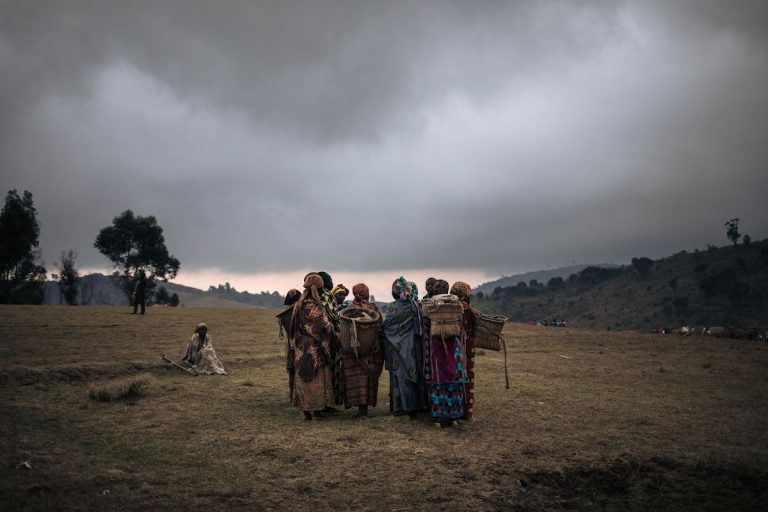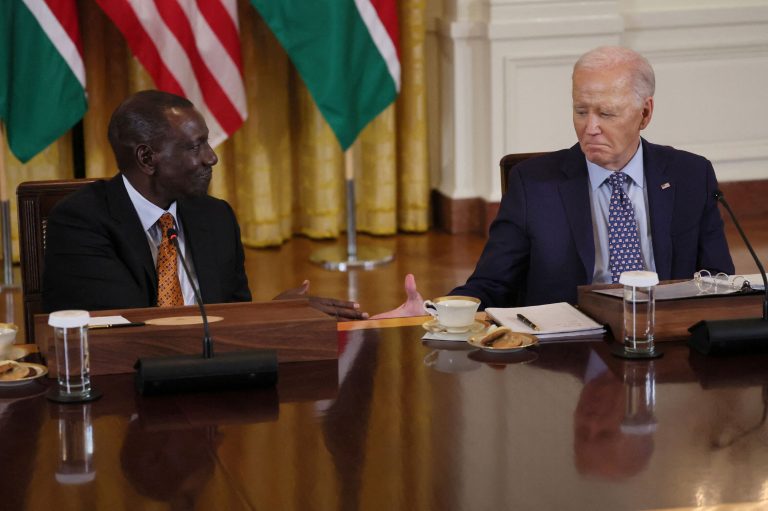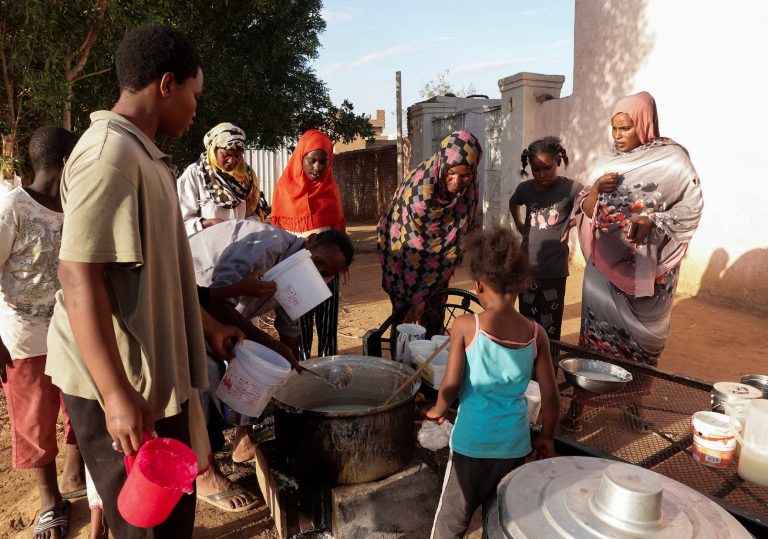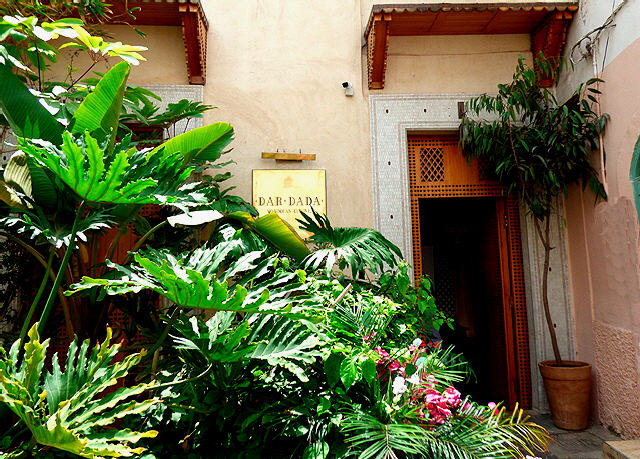The World Health Organization (WHO) has been accused of mishandling sex abuse allegations against its staff members following the Ebola outbreak in Congo in 2018, according to an investigation and exposé published by the Associated Press. The allegations involve at least two WHO doctors who were stationed in the African nation during the epidemic, Boubacar Diallo from Canada and Jean-Paul Ngandu from Congo.
Boubacar Diallo
Diallo reportedly has connections with the top WHO managers, including Director-General Tedros Adhanom Ghebreyesus. In late 2019, a young Congolese woman named Anifa who was working at an Ebola treatment center in Beni alleged that Diallo offered her a job with five times her current salary. “He wanted me to sleep with him,” she told AP. She rejected the offer, saying “if he hires me after sleeping with him… I would be a sex slave, not a WHO employee.”
“I condemn WHO for not sanctioning Dr. Boubacar Diallo because I know already they have complaints against him. I asked myself, ‘Why did the people who came to help us, to fight Ebola here at home, why do they want to destroy our lives?’” she said to AP.
Another woman named Reby was approached by Diallo with a similar offer. “If you sleep with me, you are going to be a high-ranking member of the Ebola response in Beni and you are going to receive around $800 a month,” he told her. Reby also declined the offer, and said “From that day on, he always called me the difficult girl.”
Diallo also offered 25-year-old Shekinah double her salary. “When he asked me to sleep with him, given the financial difficulties of my family… I accepted,” she said to the media outlet. “I wanted to quit… But because of my financial problems, I endured it.” Even after they parted ways, Diallo continued to send indecent requests. Several other women in Beni were also victimized by Diallo.
Success
You are now signed up for our newsletter
Success
Check your email to complete sign up
Diallo should be punished “for his sexual abuse of all those girls in Beni as a lesson to these international organizations that this should not happen again. I would like justice to be done,” Shekinah said.
All three women, Anifa, Reby, and Shekinah, declined to share their full names as they were afraid of negative repercussions, including harming their job prospects. The exposé states that a WHO staffer and three Ebola experts working in Congo had informed the organization’s management about Diallo’s behavior, but were asked not to pursue the matter further.
Diallo denied the accusations levied against him. He described his relationship with Tedros as “purely professional” and said that he has never been disciplined for misconduct at WHO nor informed of any complaints regarding his behavior. “I have never offered a woman a job in exchange for sex and I have never sexually harassed a woman in my life,” he said. Diallo states that he stopped working for the WHO at the end of July.
Dr. Michel Yao, a senior manager at WHO, received complaints about Diallo. Yao did not have the power to terminate Diallo and decided not to place him on administrative leave. It is unknown whether Yao forwarded the complaints against Diallo or Ngandu to the WHO’s international investigator or his superiors as required by WHO protocol. Yao has now been promoted to director of Geneva’s Strategic Health Operations Department.
Jean-Paul Ngandu
Yao first learned of the sexual misconduct allegations against Ngandu through an email he received in April 2019, according to the AP report. Ngandu had “impregnated a girl from Beni,” Outbreak manager Mory Keita wrote in an email to Yao.
Keita stated that the girl and her aunt went to Hotel Okapi, accompanied by two armed police officers, to look for Ngandu. They claimed that the doctor had been having an affair with the girl. While Ngandu admitted to the relationship, he claimed that it lasted for only two weeks. The aunt responded that her niece had slept with Ngandu a month and a half ago and that he gave her $100 at the time, a claim that “Ngandu could not deny,” the email stated.
The girl and her aunt asked for compensation because Ngandu would likely abandon the girl and leave her to raise the child alone. Less than a week after the email, Ngandu reached an agreement with the two women.
AP obtained a notarized contract signed by four witnesses, including two WHO staffers, requiring Ngandu to pay $100 per month until the child was delivered, to cover the girl’s healthcare costs, and to purchase a plot of land for her. The land, valued at $2,800, contained a house located in a Beni neighborhood. Ownership rights were transferred to the girl in August 2019.
Ngandu told AP that the agreement was created to “protect the integrity and reputation” of WHO, and claimed that he was not the father of the baby. WHO colleagues, including Keita, encouraged Ngandu to arrive at a settlement so as to avoid sullying his reputation. The doctor, who was not disciplined by the organization and finished his WHO contract in June 2019, is now working in Namibia.
Code of conduct versus reality
WHO’s code of conduct for staffers prohibits them from actions that could be “perceived as an abuse of privileges” or as engaging in “acts of sexual exploitation.” An internal WHO audit conducted in 2020 found that workers sent to aid Ebola relief efforts were never required to finish the organization’s sex abuse prevention training.
Paula Donovan, co-director of the Code Blue Campaign, criticized WHO’s handling of the sexual abuse cases. “It’s a perversion of justice that WHO thinks they could take the law into their own hands and resolve a case without going to the proper authorities… If this is how they treated one case, how are they treating all the others?” she said to AP.
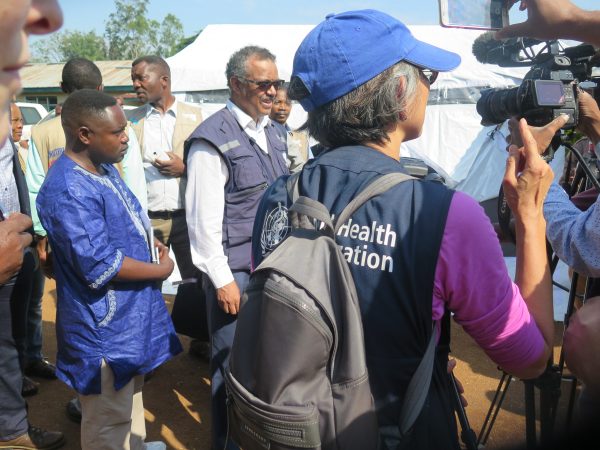
Following the report, the US State Department said more must be done to resolve sexual abuse issues at the WHO, and the parties responsible for such abuses should be “held accountable,” reported AP News. The United States is the largest donor to WHO.
UK’s ambassador to the United Nations, Simon Manley, stated that they were speaking with WHO and other donors to “establish the facts” and said that his country has a “zero-tolerance approach” when it comes to sexual harassment and exploitation. The UK is the second-largest donor to the WHO.
Another investigation conducted by the Thomson Reuters Foundation and The New Humanitarian also uncovered several incidents of sexual abuse during the Ebola outbreak in Congo.
“More than 70 Congolese women said they were coerced into trading sex for jobs by men who said they worked for aid groups during a 2018 to 2020 Ebola outbreak. More than 40 of the women in the Democratic Republic of Congo accused men who said they worked for the WHO of abuse, including one claim of rape,” Reuters reported.
Two women said that they conducted illegal abortions to prevent pregnancies. Another woman died after taking a black market concoction to terminate her pregnancy. She reportedly worked for a man affiliated with the WHO, who had given her a job as a cleaner.
‘Untouchable’ facade due to Tedros connection
Lawrence Gostin, Director of WHO Collaborating Center on Global Health Law at Georgetown University, stated that Director-General Tedros had the ultimate responsibility regarding WHO’s Ebola response. Gostin suggested that Diallo may have used his relationship with Tedros to sexually exploit women, and that it was necessary to understand what Tedros “knew and when he knew it.”
The three Ebola experts who had complained to WHO management about Diallo were specifically told that Diallo was “untouchable” due to his relationship with Tedros. Several reports of the WHO’s involvement in sexual abuse in Congo had already surfaced last year.
In an email, Tedros promised to deliver “serious consequences” for the allegations. The Director-General ordered an independent investigation, with a report due to come out sometime in August.
‘Reprehensible’ epidemic coverups
During his time as Ethiopia’s health minister, Tedros attempted to cover up cholera outbreaks in the country, ORF Online reported. He categorized cholera as acute water diarrhea (AWD) to make it appear less damaging, and as a result, the Ethiopian government failed to acknowledge the outbreak and distribute cholera vaccines. In 2017, a team of American doctors wrote a letter to Tedros, criticizing him for “WHO’s refusal to refer to the cholera epidemic” that was raging in Sudan, instead using the term, AWD.
“Your silence about what is clearly a massive cholera epidemic in Sudan daily becomes more reprehensible. Your failure to transport stool samples from victims in Sudan to Geneva for official confirmation of cholera makes you fully complicit in the terrible suffering and dying… The inevitable history that will be written of this epidemic will surely cast you in an unforgiving light,” the letter stated.
More recently, Tedros met with Chinese President Xi Jinping at the end of January 2020 and commended the country’s efforts to control the Coronavirus Disease 2019 (COVID-19) outbreak. He praised the Chinese Communist Party (CCP) for its “openness to sharing information” regarding the virus, according to a DW report.
With reporting by Steven Li.



